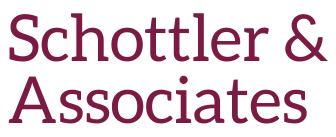Bankruptcy has a bad reputation for negatively affecting your credit and liquidating assets. However, filing bankruptcy allows individuals and businesses to gain a fresh start on a path towards financial freedom from debt. There are many different types of bankruptcy, and it isn’t the right choice for everyone. If you’re considering bankruptcy, you need to weigh all of your options first. How can you tell if filing bankruptcy is right for you?
Alternatives to Filing Bankruptcy
Bankruptcy isn’t always the answer. Before filing, you should consider some of the alternatives to bankruptcy first and see if one fits your needs more. Some alternatives are:
- Debt Consolidation – Debt consolidation is a way to combine all of your debts into one sum. This allows interest rates to be lower and decreases the amount of creditors calling you. This can also improve your credit score.
- Negotiating With Creditors -Negotiating with your creditors can help you by agreeing on a repayment plan that is more realistic for your situation or by selling off assets you’re willing to use to pay off debts. It can even result in creditors settling for less than you originally owed.
- Credit Counseling – Non profit credit counseling agencies are available to help negotiate with creditors on your behalf. They can help you negotiate a realistic repayment plan that results in alleviating some of the debt you’re under.
Types of Bankruptcy
There are a few different types of bankruptcy, each with their own requirements. If you have decided none of the alternatives will work for your situation, filing bankruptcy may be the next best option. You need to determine which type of bankruptcy you’re eligible for.

Chapter 7
Chapter 7 bankruptcy is often the best option for individuals. It can eliminate most of your debt and can require liquidation of certain assets. In most cases, the individual can keep their home and vehicle. To qualify, an individual must:
- Pass the Means Test – This tests your household income which must be below the state average. The second part of the test considers your expenses. Disposable income that is below a certain amount can allow you to qualify for Chapter 7.
- Not have completed a previous bankruptcy – A person must not have completed a previous Chapter 7 or Chapter 13 in the past 6-8 years.
- Not have filed a bankruptcy petition recently – If a person has filed a bankruptcy petition in the past 180 days, they are not eligible for Chapter 7.
Chapter 13
This is a type of bankruptcy known for creating a repayment plan. The plan requires a person to pay off their debts in a 3-5 year period. This option is typically best for individuals with a higher income who are overwhelmed by creditors. To be eligible you must:
- You are not a business – Only individuals can file for Chapter 13. A business owner cannot file under their business name, but can file as an individual.
- Have not filed for bankruptcy previously – You must not have filed for Chapter 13 in the last 2 years or chapter 7 in the last 4 years.
- Not have filed a bankruptcy petition recently – If a person has filed a bankruptcy petition in the past 180 days, they are not eligible for Chapter 13.
- Not have debts which exceed a certain amount – There is a cap on how much unsecured debt and secured adept a person has. This varies state to state.
There are many other requirements for filing bankruptcy. To learn more about bankruptcy, visit us here. It is best to speak with an experienced bankruptcy attorney to determine your eligibility and to file a petition. Schottler & Associates has extensive experience helping clients in Chicago IL file for Chapter 7 and Chapter 13. If you have questions, set up a free 30 minute consultation with an experienced bankruptcy attorney on our team. You can set your consultation up here.

